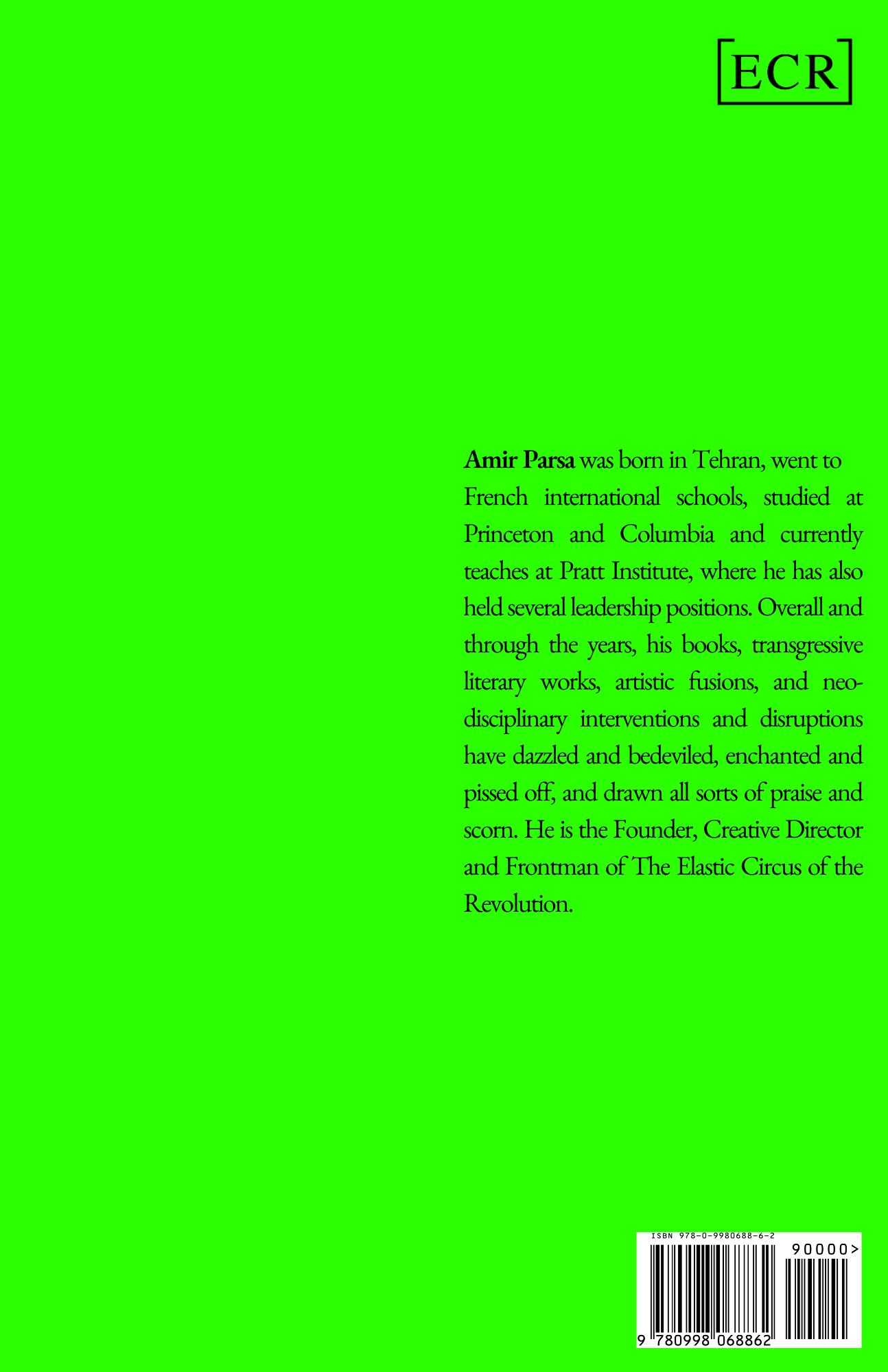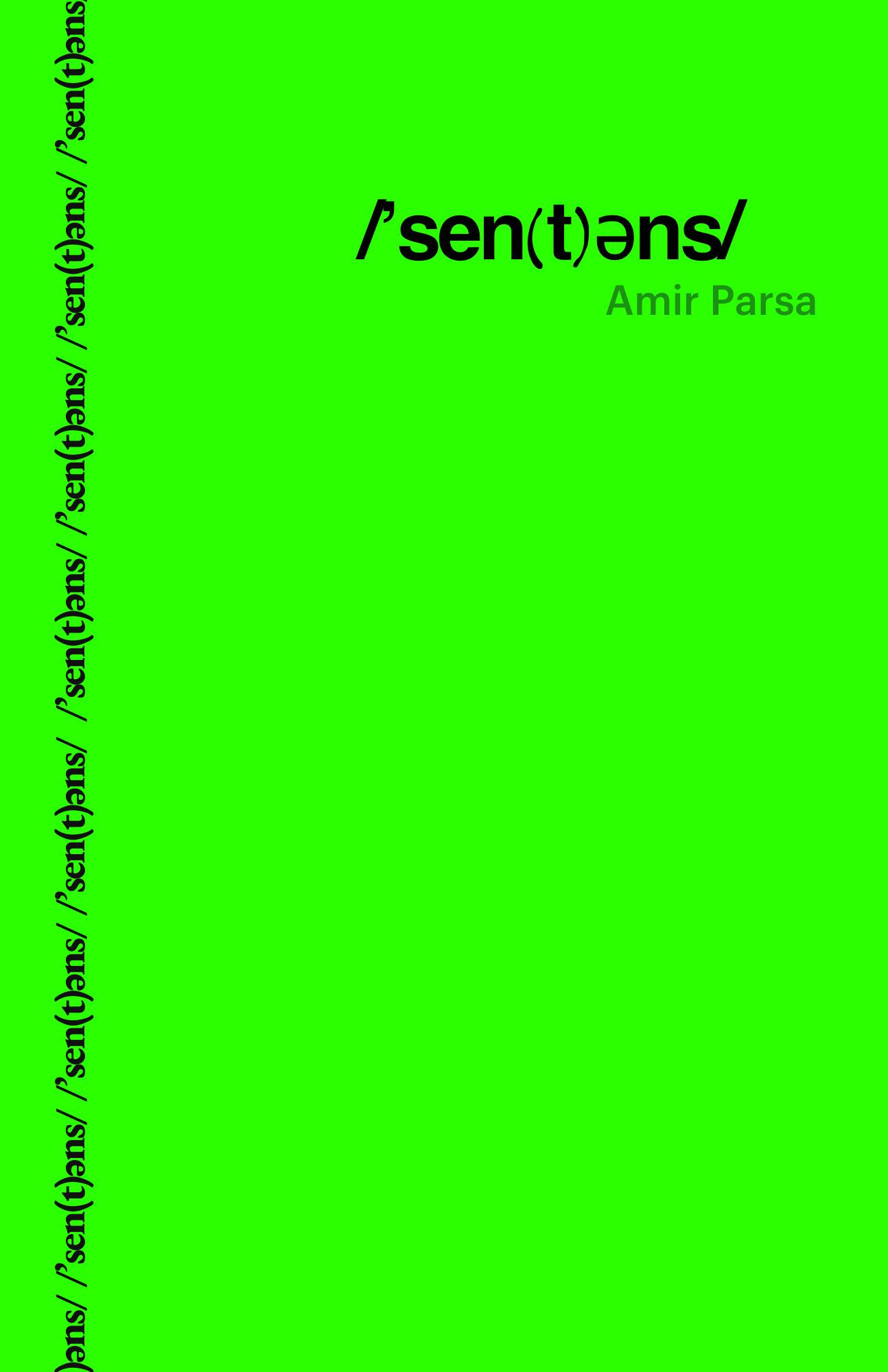

/'sen(t)әns/ amir parsa
/’sen(t)әns/
Published by The Elastic Circus of the Revolution
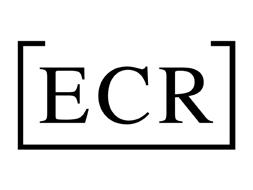
Copyright © by Amir Parsa 2021
All rights reserved. No part of this work may be reproduced, stored in a retrieval system, or transmitted in any form or by any means without the prior written permission of both copyright owner and the publisher of the work, except in the case of brief excerpts embodied in critical articles or review.
This is a literary work of poetic prose and dramatic unfolding. Names, characters, places, and incidents, are products of the author’s imagination or are used fictitiously. Any resemblance to actual events or locales or persons, living or dead, is coincidental. Participatory engagement by audiences within the installation iteration of the work was anonymous and contributed to the overall piece in fragmented ways.
ISBN: 978-0-9980688-6-2
Cover and book design: Sydney Haas
/'sen(t)әns/
/'sen(t)әns/ /’sen(t)әns/ /’sen(t)әns/ /’sen(t)әns/ /’sen(t)әns/ /’sen(t)әns/ /’sen(t)әns/ /’sen(t)әns/ /’sen(t)әns/ /’sen(t)әns/ /’sen(t)әns/ /’sen(t)әns/ /’sen(t)әns/ /’sen(t)әns/ /’sen(t)әns/ /’sen(t)әns/ /’sen(t)әns/ /’sen(t)әns/ /’sen(t)әns/ /’sen(t)әns/ /’sen(t)әns/ /’sen(t)әns/ /’sen(t)әns/ /’sen(t)әns/ /’sen(t)әns/ /’sen(t)әns/ /’sen(t)әns/ /’sen(t)әns/ /’sen(t)әns/ /’sen(t)әns/ /’sen(t)әns/ /’sen(t)әns/ /’sen(t)әns/ /’sen(t)әns/
/’sen(t)әns/ /’sen(t)әns/ /’sen(t)әns/
/'sen(t)әns/
/’sen(t)әns/
/’sen(t)әns/
/’sen(t)әns/
/’sen(t)әns/
/’sen(t)әns/
/’sen(t)әns/
/’sen(t)әns/
/’sen(t)әns/
/’sen(t)әns/
/’sen(t)әns/
/’sen(t)әns/
/’sen(t)әns/
/’sen(t)әns/
/’sen(t)әns/
/’sen(t)әns/
/’sen(t)әns/
/’sen(t)әns/
/’sen(t)әns/
/’sen(t)әns/
/’sen(t)әns/
/’sen(t)әns/
/’sen(t)әns/
/’sen(t)әns/
/’sen(t)әns/
/’sen(t)әns/
/’sen(t)әns/
/’sen(t)әns/
/’sen(t)әns/
/’sen(t)әns/
/’sen(t)әns/
/’sen(t)әns/
/’sen(t)әns/
/’sen(t)әns/
/’sen(t)әns/
/’sen(t)әns/
/’sen(t)әns/
/'sen(t)әns/ /’sen(t)әns/
/’sen(t)әns/
/’sen(t)әns/
/’sen(t)әns/
/’sen(t)әns/
/’sen(t)әns/
/’sen(t)әns/
/’sen(t)әns/
/’sen(t)әns/
/’sen(t)әns/
/’sen(t)әns/
/’sen(t)әns/
/’sen(t)әns/
/’sen(t)әns/
/’sen(t)әns/
/’sen(t)әns/
/’sen(t)әns/
/’sen(t)әns/
/’sen(t)әns/
/’sen(t)әns/
/’sen(t)әns/
/’sen(t)әns/
/’sen(t)әns/
/’sen(t)әns/
/’sen(t)әns/
/’sen(t)әns/
/’sen(t)әns/
/’sen(t)әns/
/’sen(t)әns/
/’sen(t)әns/
/’sen(t)әns/
/’sen(t)әns/
/’sen(t)әns/
/’sen(t)әns/
/’sen(t)әns/
/’sen(t)әns/
/'sen(t)әns/
/’sen(t)әns/
/’sen(t)әns/
/’sen(t)әns/
/'sen(t)әns/
/’sen(t)әns/
/’sen(t)әns/
/’sen(t)әns/
/’sen(t)әns/
/’sen(t)әns/
/’sen(t)әns/
/’sen(t)әns/
/’sen(t)әns/
/’sen(t)әns/
/’sen(t)әns/
/’sen(t)әns/
/’sen(t)әns/
/’sen(t)әns/
/’sen(t)әns/
/’sen(t)әns/
/’sen(t)әns/
/’sen(t)әns/
/’sen(t)әns/
/’sen(t)әns/
/’sen(t)әns/
/’sen(t)әns/
/’sen(t)әns/
/’sen(t)әns/
/’sen(t)әns/
/’sen(t)әns/
/’sen(t)әns/
/’sen(t)әns/
/’sen(t)әns/ /’sen(t)әns/
/’sen(t)әns/
/’sen(t)әns/ /’sen(t)әns/
/’sen(t)әns/
/’sen(t)әns/
/’sen(t)әns/
/’sen(t)әns/
/’sen(t)әns/
/’sen(t)әns/
/’sen(t)әns/
/’sen(t)әns/
/’sen(t)әns/
/’sen(t)әns/
/’sen(t)әns/
/’sen(t)әns/
/’sen(t)әns/
/’sen(t)әns/
/’sen(t)әns/
/'sen(t)әns/
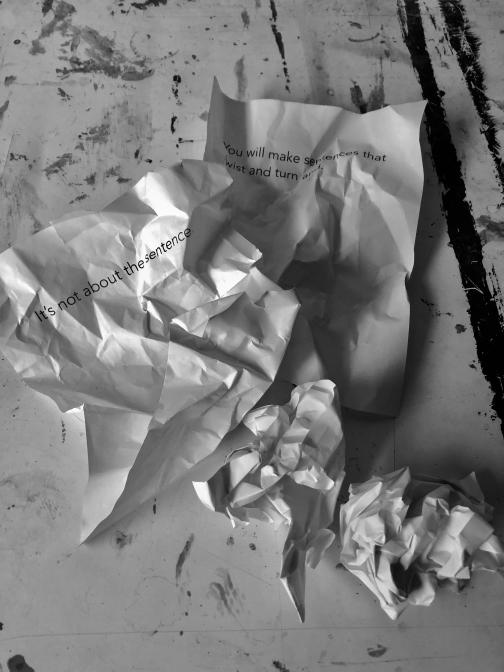
Prelude
/’sen(t)әns/ is a participatory literary work that takes place in the confines of an enclosed space. Sentences are written and posted on walls, only to be commented on, erased, written over, replaced, scrunched up and thrown to the ground and/or in a corner. The pieces can also be torn down, while others on the ground are put back on the wall. The observer-participant thus becomes an active constructor of writings (a writer!) and/or a curator (!!), depending on what turns them on–the connections of sentences and how they are sequenced/read, or the composition of the words/sentences as visuals (along with the texture and three-dimensionality (frumpiness) of the paper since it’s been scrunched and put on the ground). The viewer-reader-participant becomes contributor, editor, and publisher as they choose to take down or strike-through sentences, add or elaborate on the texts, place others up on the wall. A constant battle and revision, while the papers accumulate over time, literally submerging the watcher/reader contributor/editor/censor. And yes, there is a play on the word, on how this grand endeavor, and participating in it, is a SENTENCE. Do it. Fret not. It’s all good. The sentences are light. The sentence is light. The writer’s sentence? Writing sentences.
/’sen(t)әns/ was first public-ed in October 2021 as part of “The Remnants” exhibition, at Hot Wood Arts, during the Red Hook Open Studios, in a three-person show, alongside work from Megan Suttles and Ethan Cornell.
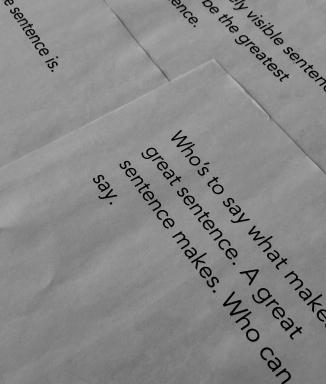
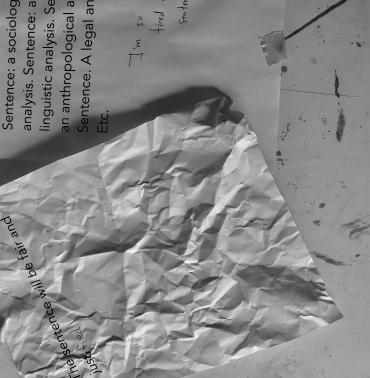
Literature is not about words but the lack of words.
I will write a good sentence. I will write a really good sentence. I will write. A really good sentence.
The sentence is.
A barely legible sentence.
A very ambiguous sentence.
A bullshit complex sentence that doesn’t mean anything.
The barely visible sentence might be the greatest sentence.
Who’s to say what makes a great sentence. A great sentence makes. Who can say.
The construction of a good sentence is the bedrock of a literary work. Sentences.
The sentence will be fair and just.
That
is a good sentence!!
That: is a good sentence. That–is a good sentence. That? A great sentence.
Writing a sentence the way nobody else writes a sentence is what makes for a singular work and a relevant work. Writing the way nobody else writes a sentence. No one. Nobody. No one. Writing a sentence that way.
It’s not about the sentence.
It’s not about the sentence but the words. It’s not about the sentence but the result. It’s not about the sentence. Actually. Just, not. Sentences are all about the lack of words.
Words don’t make up sentences. Sentences make words.
The sentence is not the key. The words are. (Keys?)
Sentences don’t matter. Only sounds.
A sentence about the importance of the sentence you write. This is good enough.
A sentence about the importance of the sentence you write. This is good enough.
A sentence without words. One day I’ll write.
A sentence without words one day I’ll build.
A sentence about words is the greatest of literary works.
A book about sentences about words.
You will write the most perfect sentence. The perfectest. Sentence.
You will write the most beautiful sentence.
You will write the most original sentence.
You will write the longest sentence. The most long!
You
will make sentences that twist and turn and.
Winding sentences.
And with that sentence you will suffer.
And after the sentence you will die.
And after that sentence, oh after that sentence.
Sentenced to writing sentences about sentences.
I will never write another good sentence. I’m sure. What makes me think I would!
I’ve always written great sentences! Why am I now throwing them all in this pile?!
Sentences are always dangerous!
Sentence: a sociological analysis.
Sentence: a linguistic analysis.
Sentence: an anthropological analysis.
Sentence: a legal analysis.
Never-ending, the sentence!
Let’s go let’s go: let’s see who can write the longest but best sentence.
Go ahead! You go! You write a good sentence. A great sentence. A literary sentence!
Sentences make the world go round, after all!
The sentence: that sentence is nonsense!
The sentence is nonsense is nonsense is nonsense!!
The sentence: the sentence is nonsense!!
Is a sentence with no punctuation marks still a sentence or not
Plenty more sentences you can write. We can write. In fact, an infinite number of sentences can be written. That’s the sentence. That: the sentence!
Go ahead then, you go: you write sentences. Here or elsewhere. You go. I’m done.
Besides, as I have said for long now, literature is not about words but the lack of words.
And besides, as I have said for long now, I write to understand why I write.
Besides, the writer is sentenced to writing sentences about sentences.
> The sentence: write sentences: without words.
> The sentence: write sentences without words?!
> The sentence: write sentences… without words!
> The sentence: write sentences without: words!...
Sentenced to writing sentences about sentences.
> The sentence: write sentences: about sentences.
> The sentence: write sentences about sentences?
> The sentence: write sentences… about sentences!
> The sentence: write sentences about: sentences?!
> The sentence: make sentences with sentences.
> The sentence: make sentences–with sentences!
> The sentence: make sentences... with sentences?
> The sentence: make sentences with: sentences?!
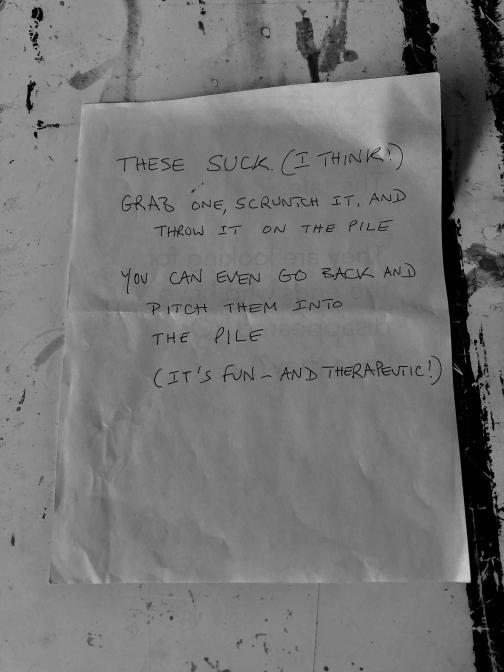
If you want…
> Pick up.
> Open and read.
> Scrunch and throw back in.
If you want…
> Write a sentence on one of the pieces of paper.
> Scrunch and throw on the pile with the rest of the scrunched drafts.
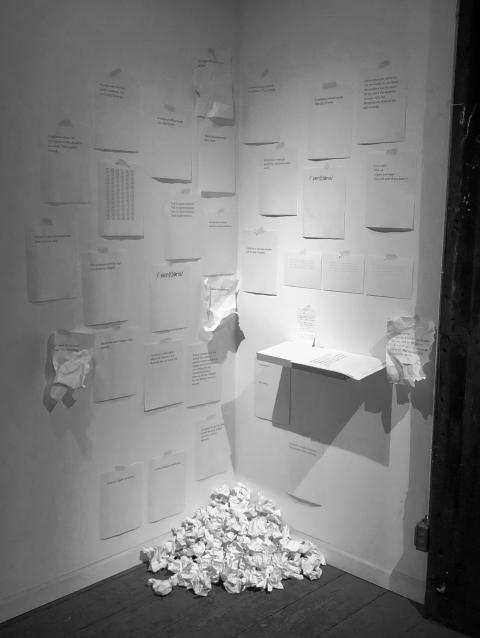
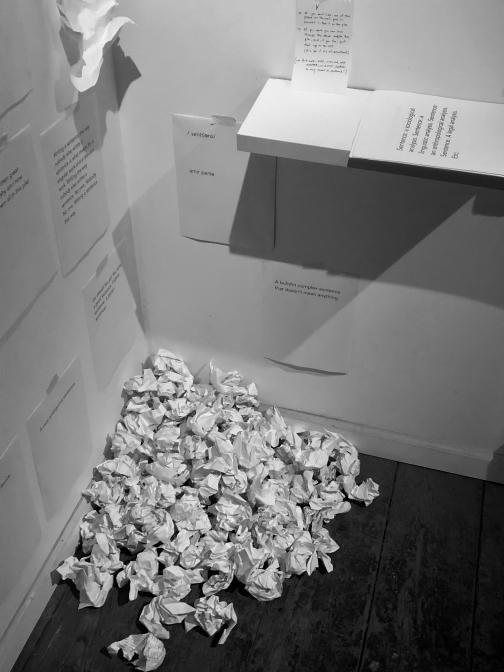
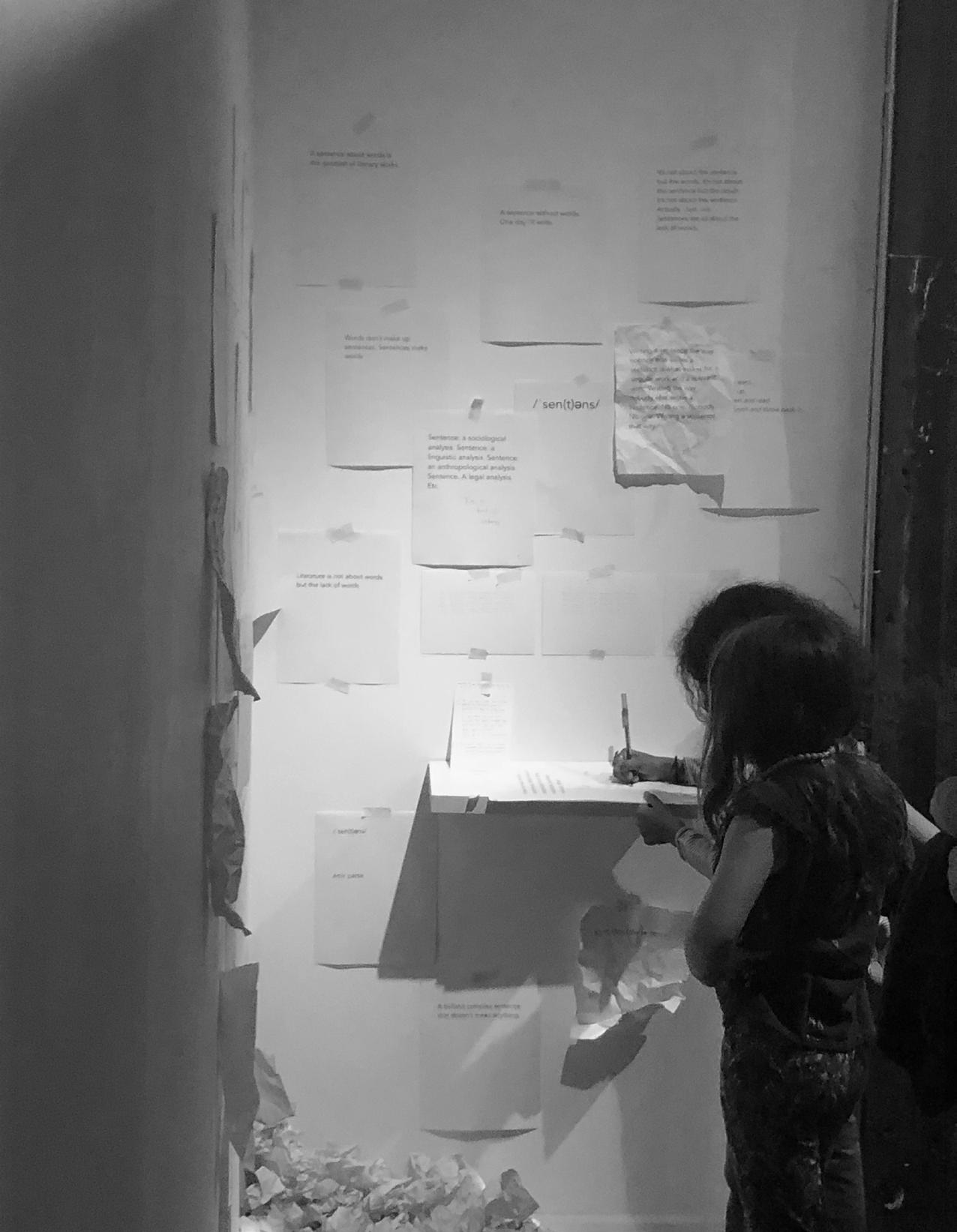
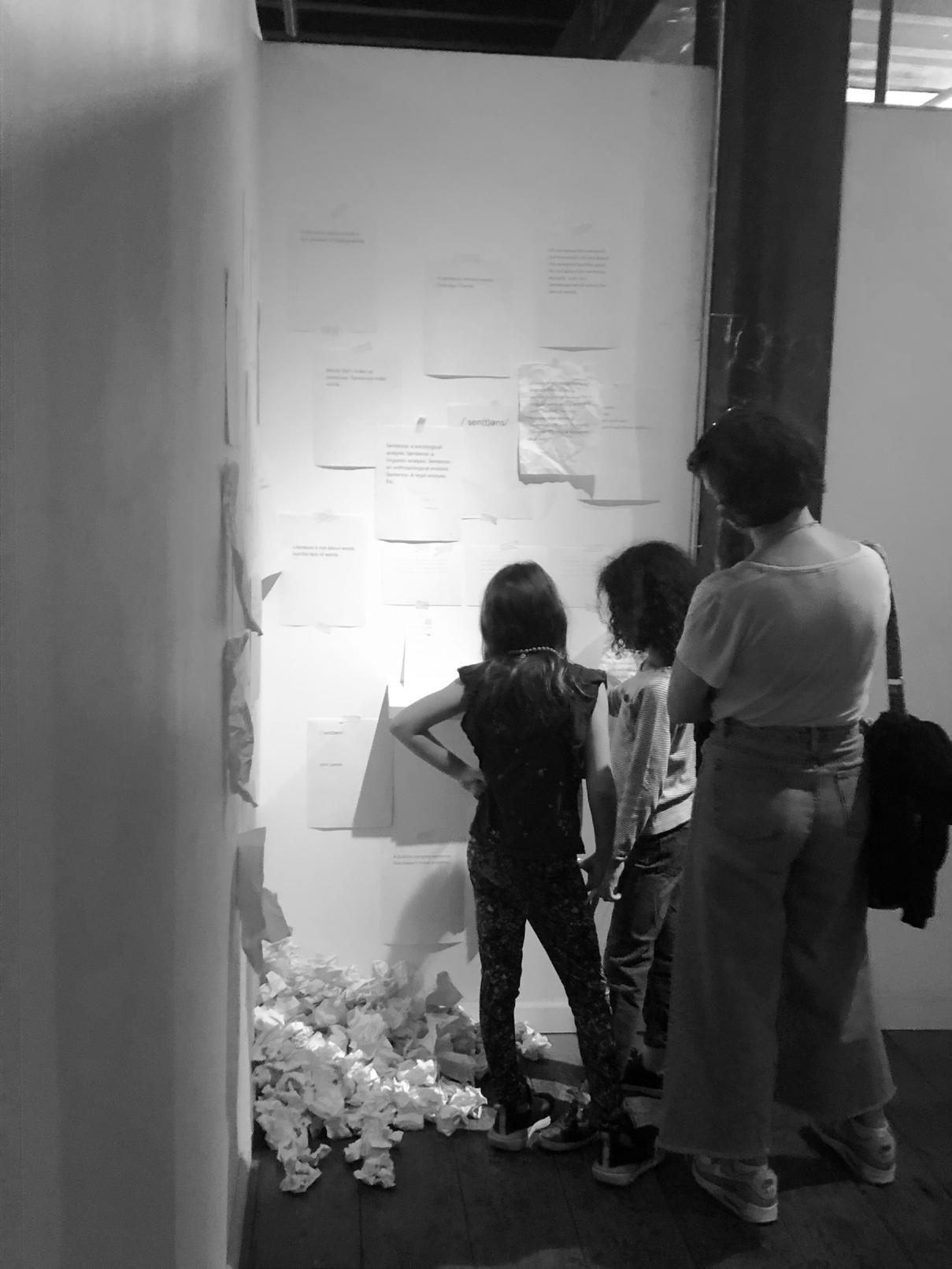
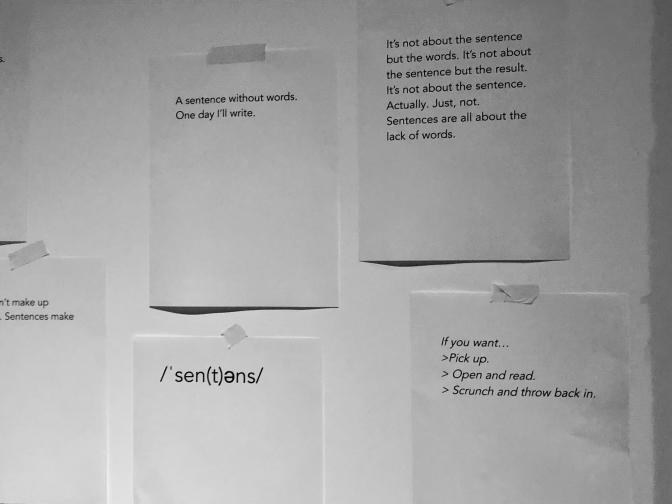
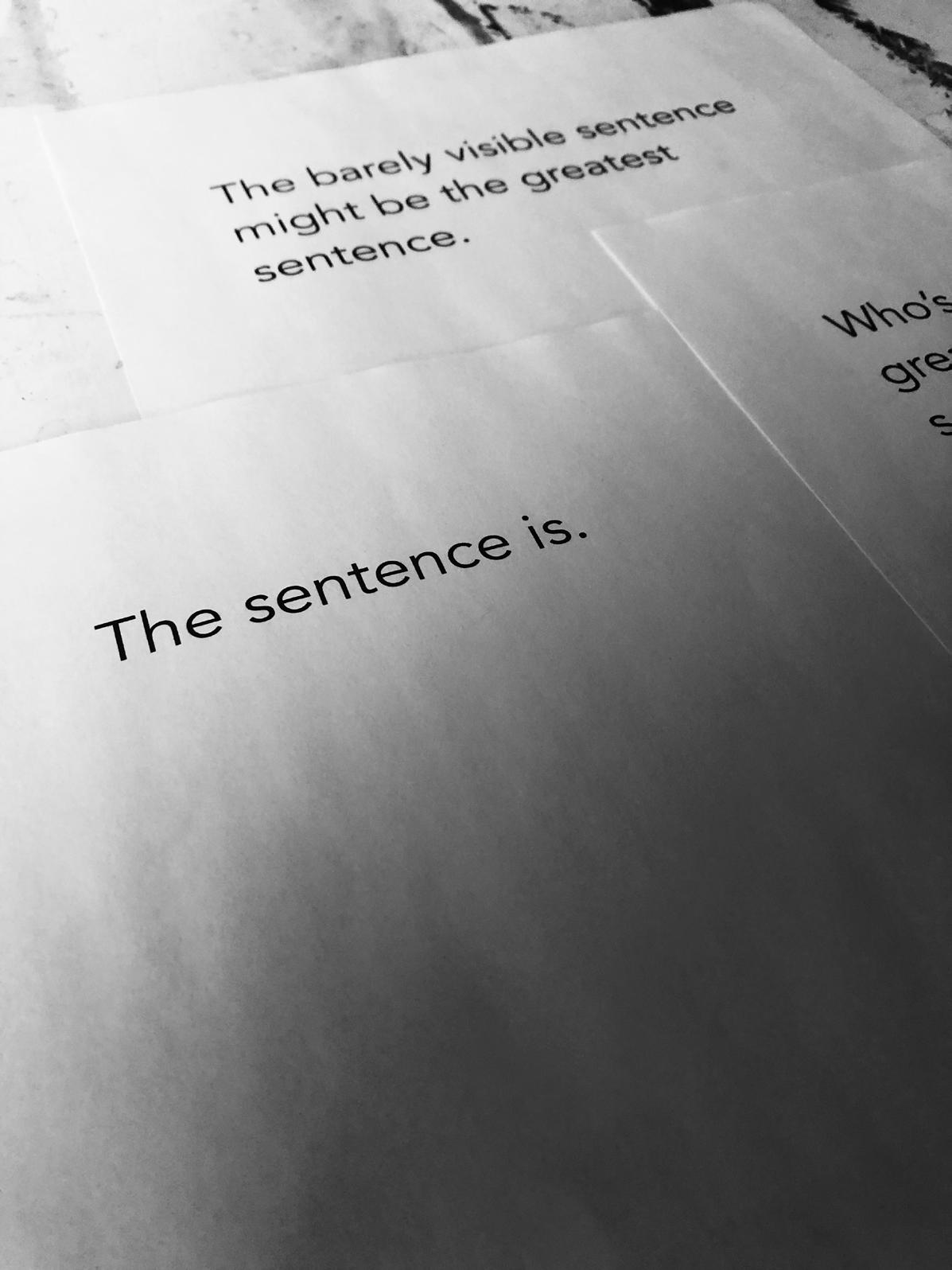
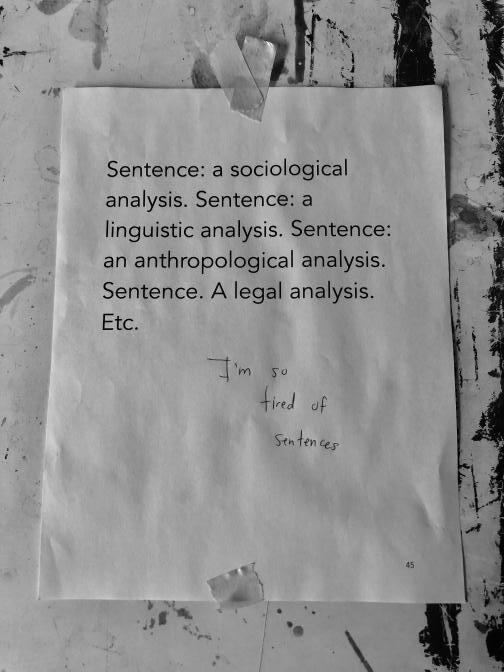
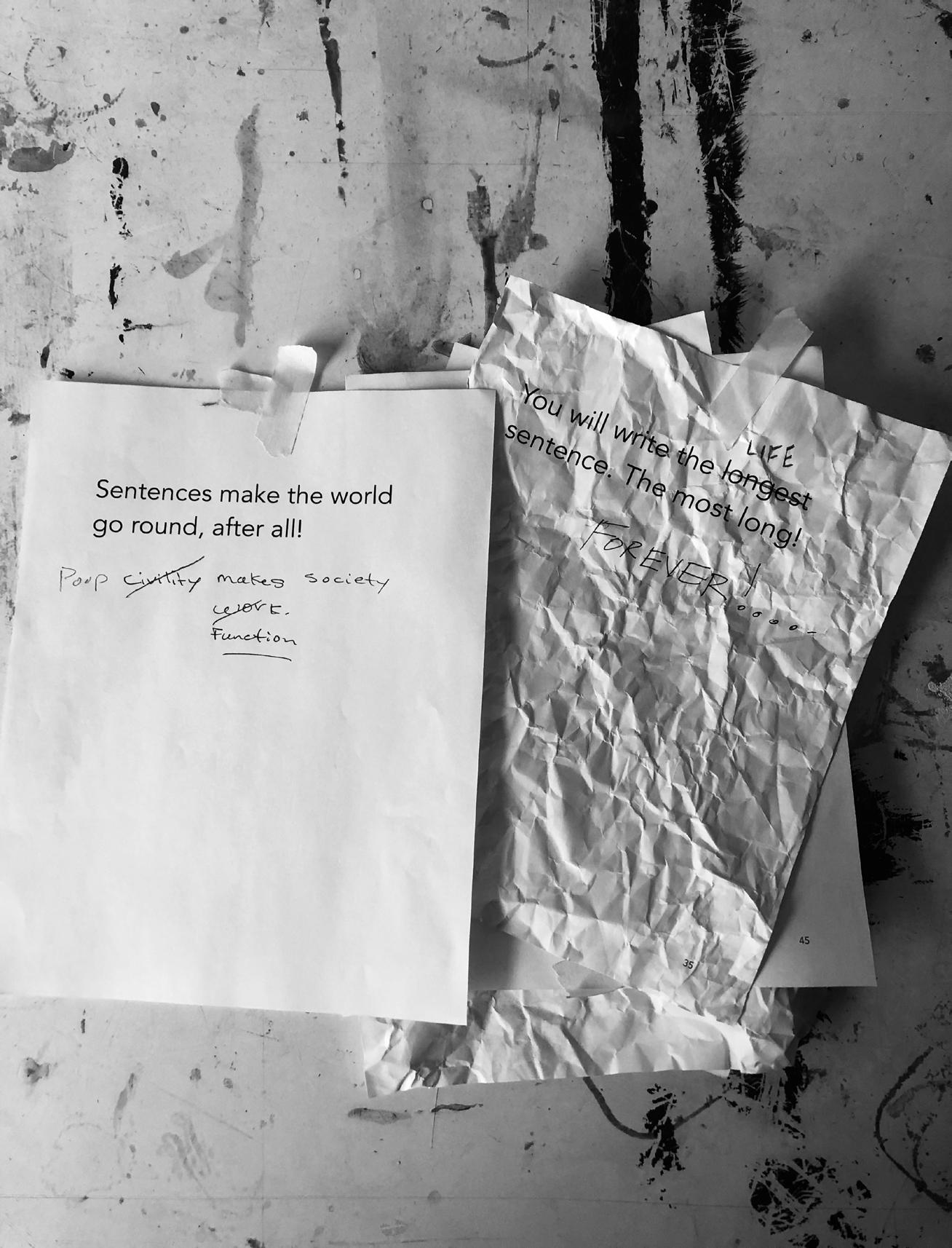
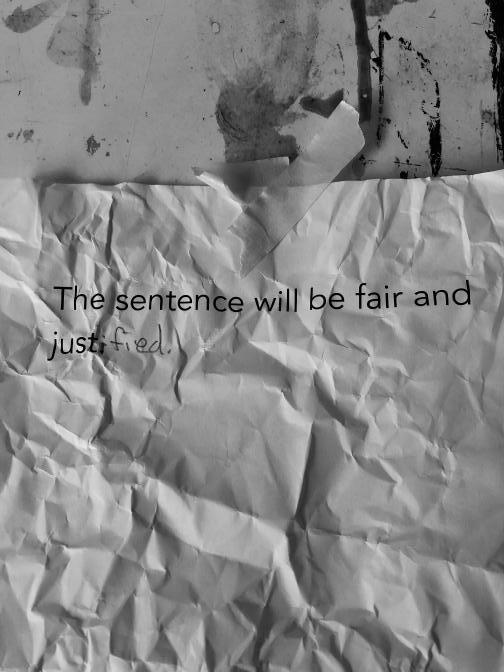
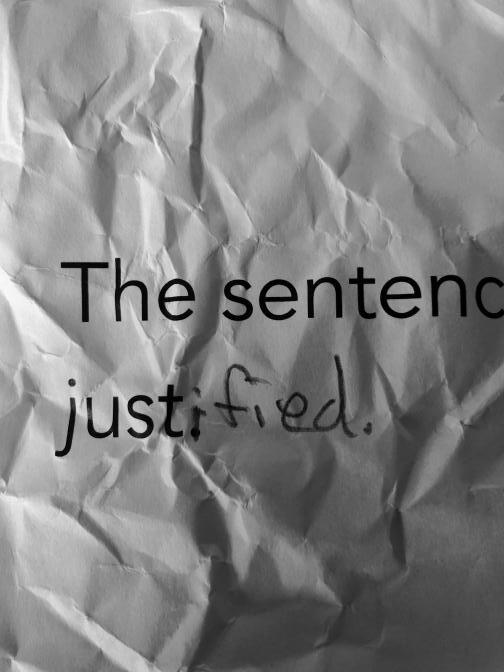
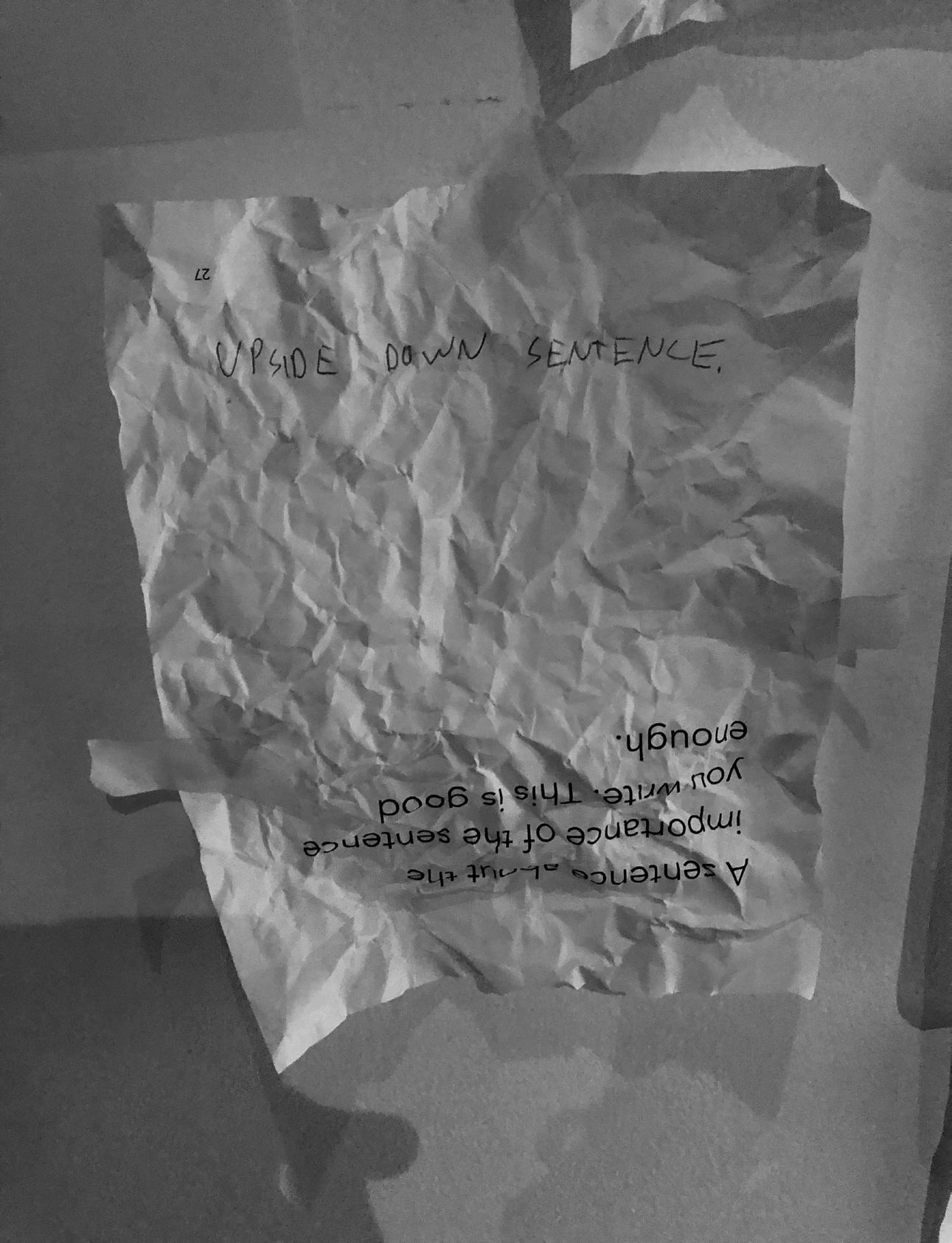
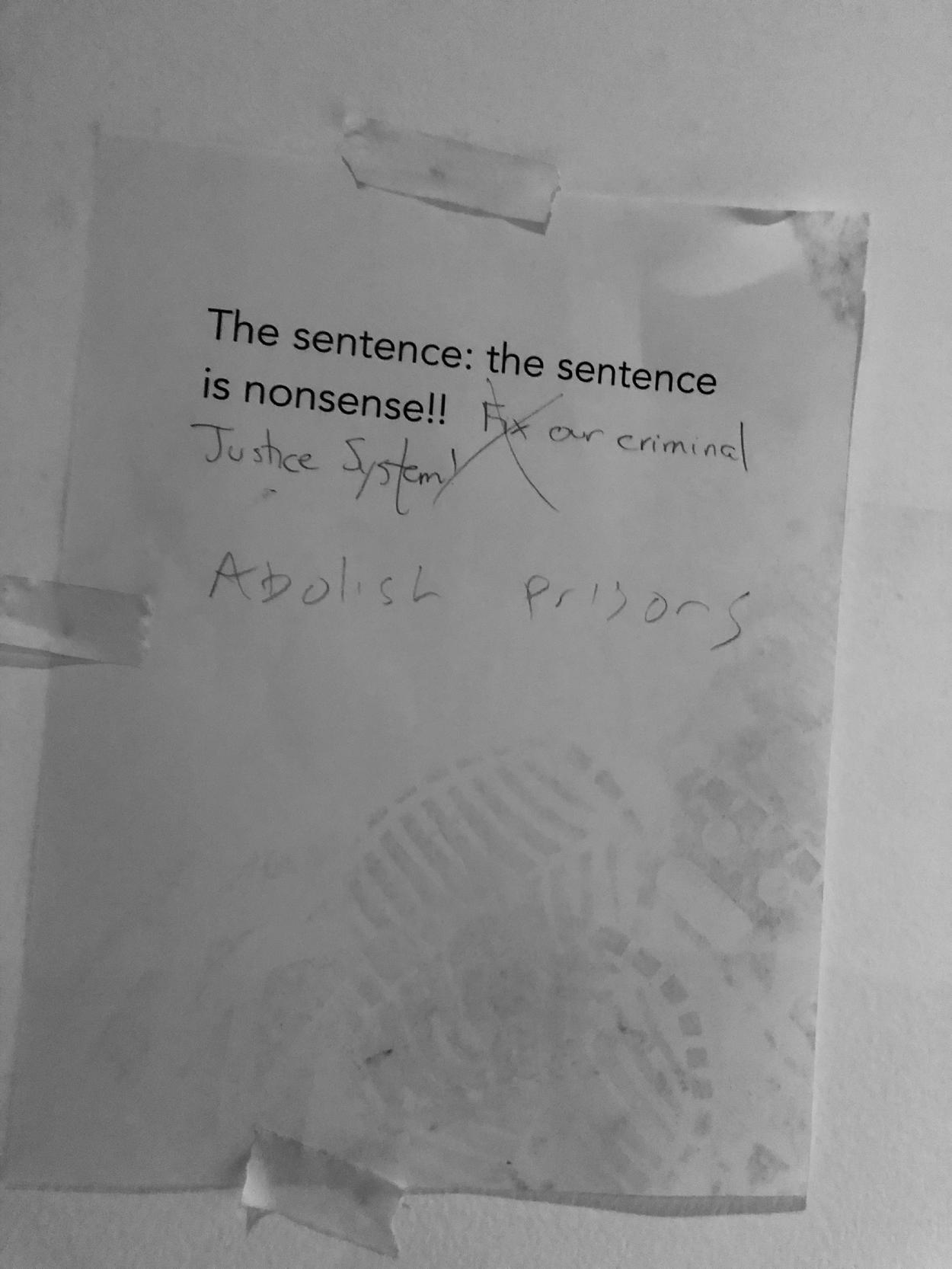
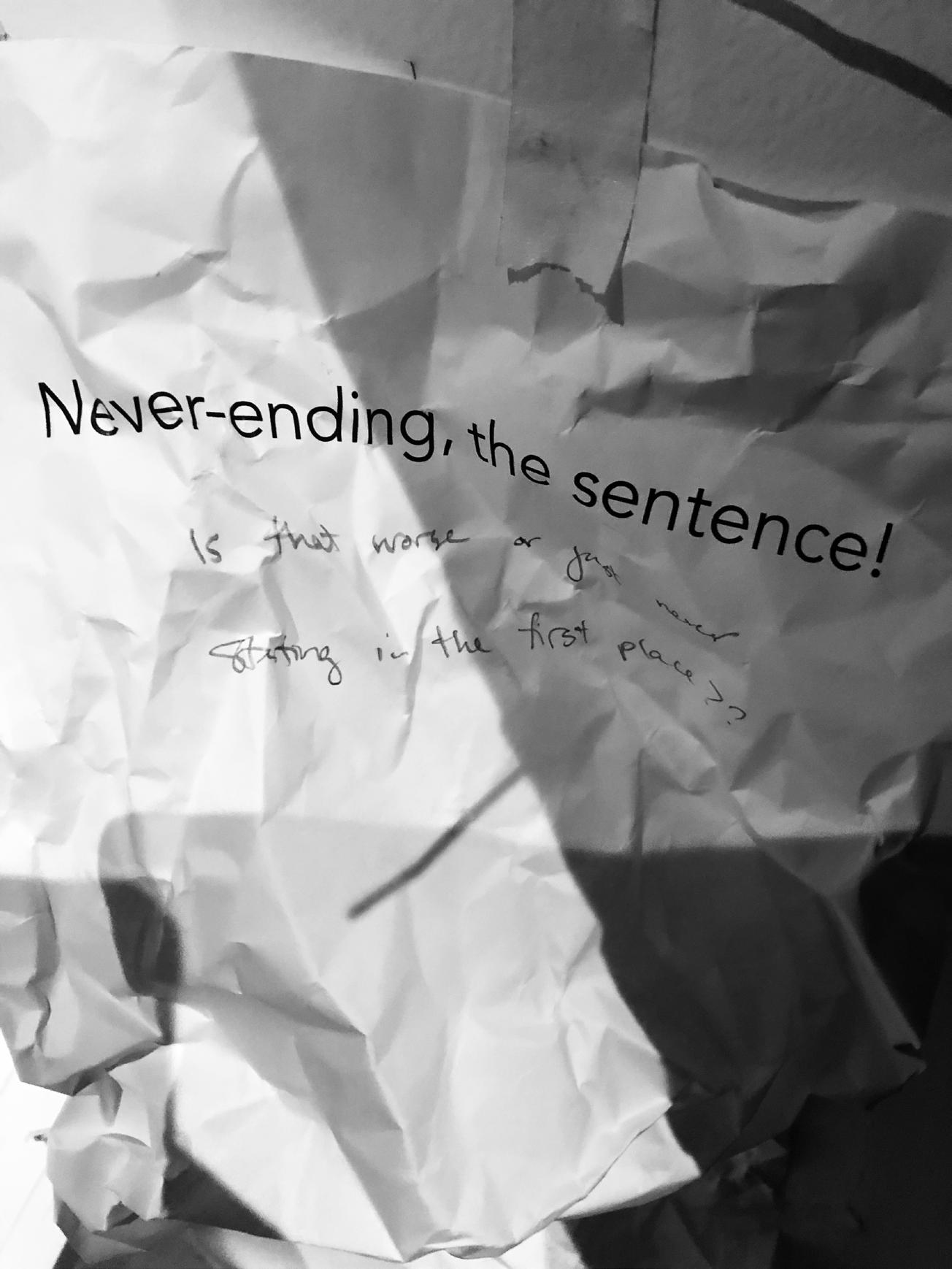
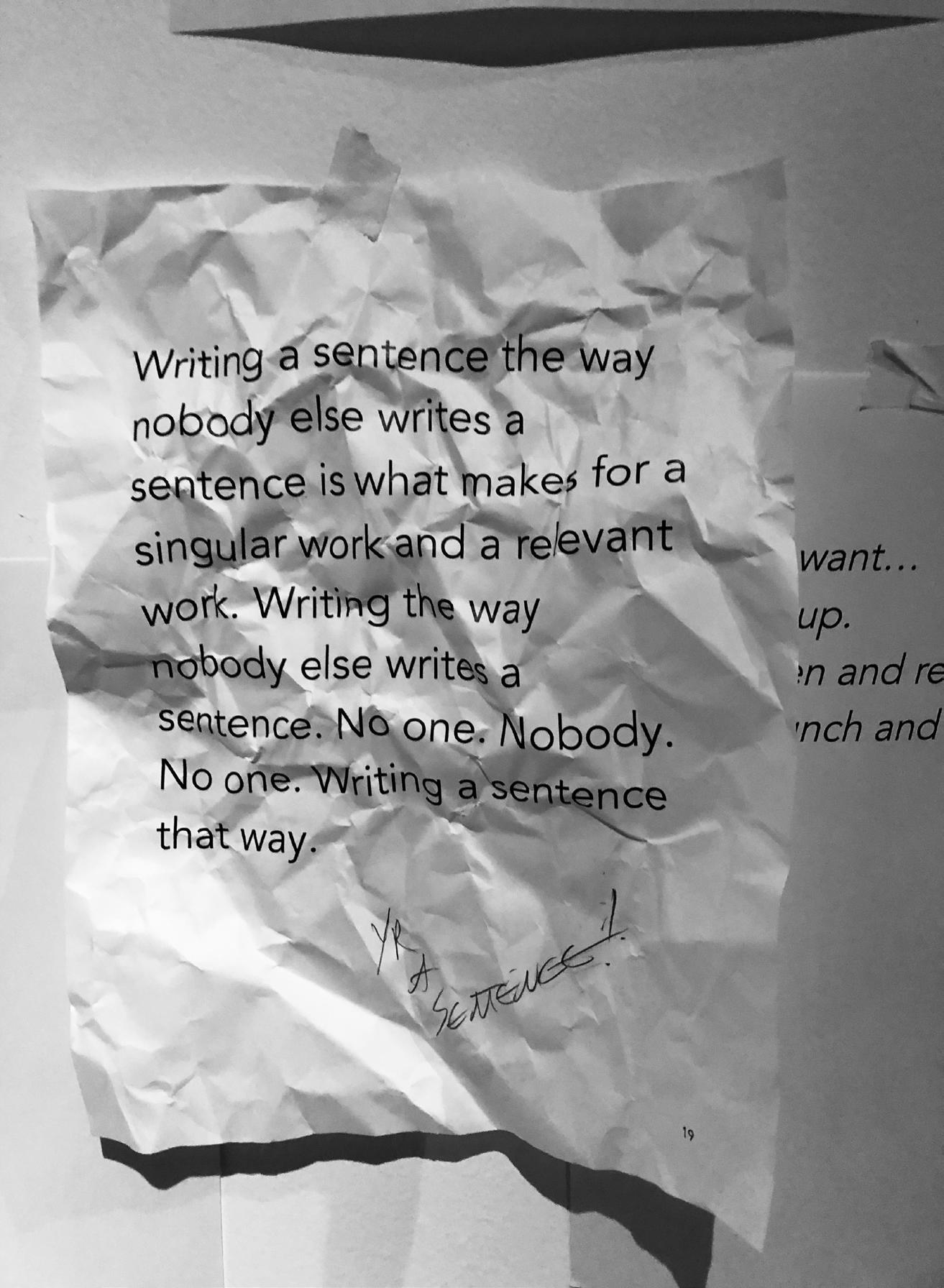
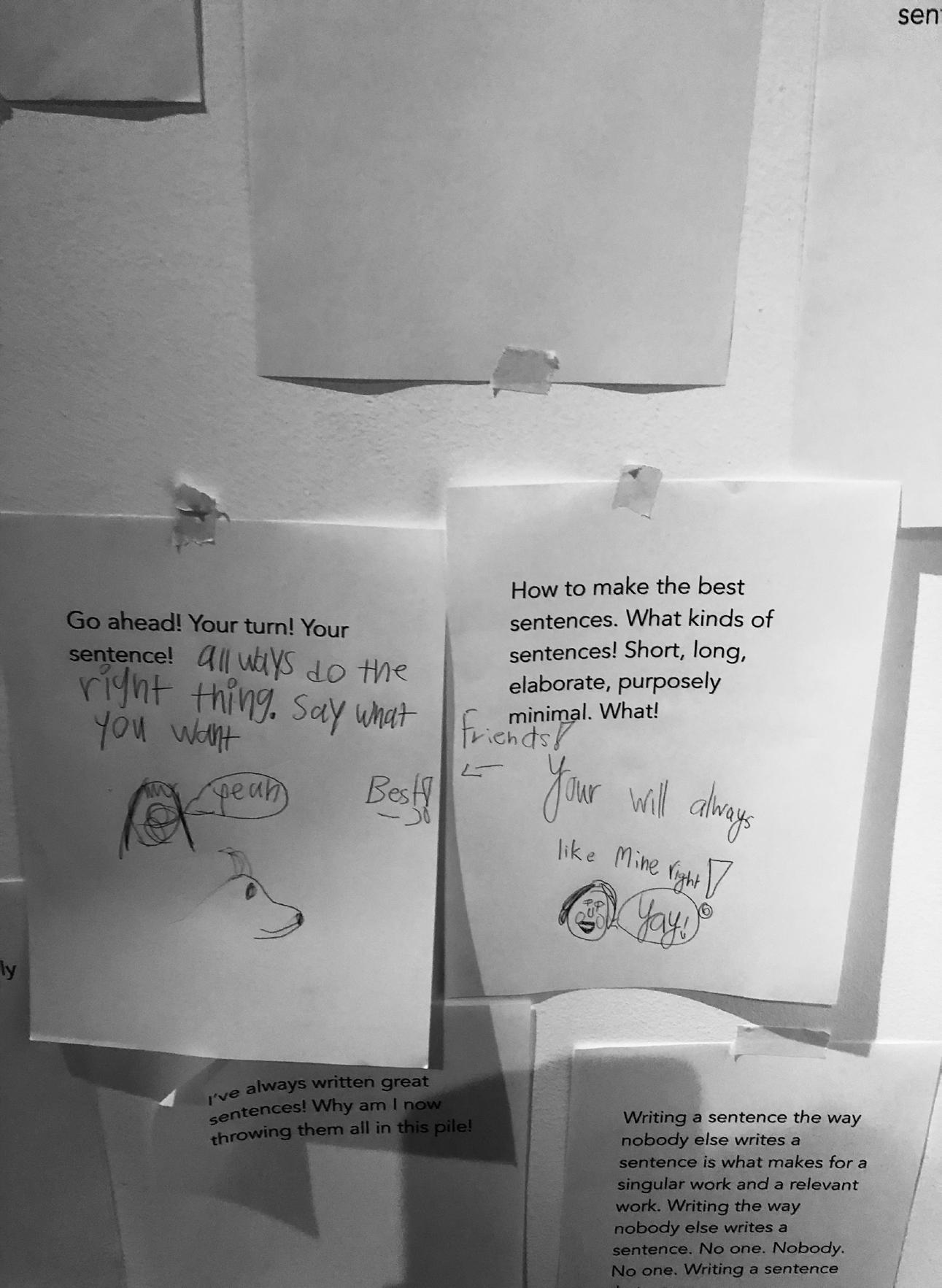
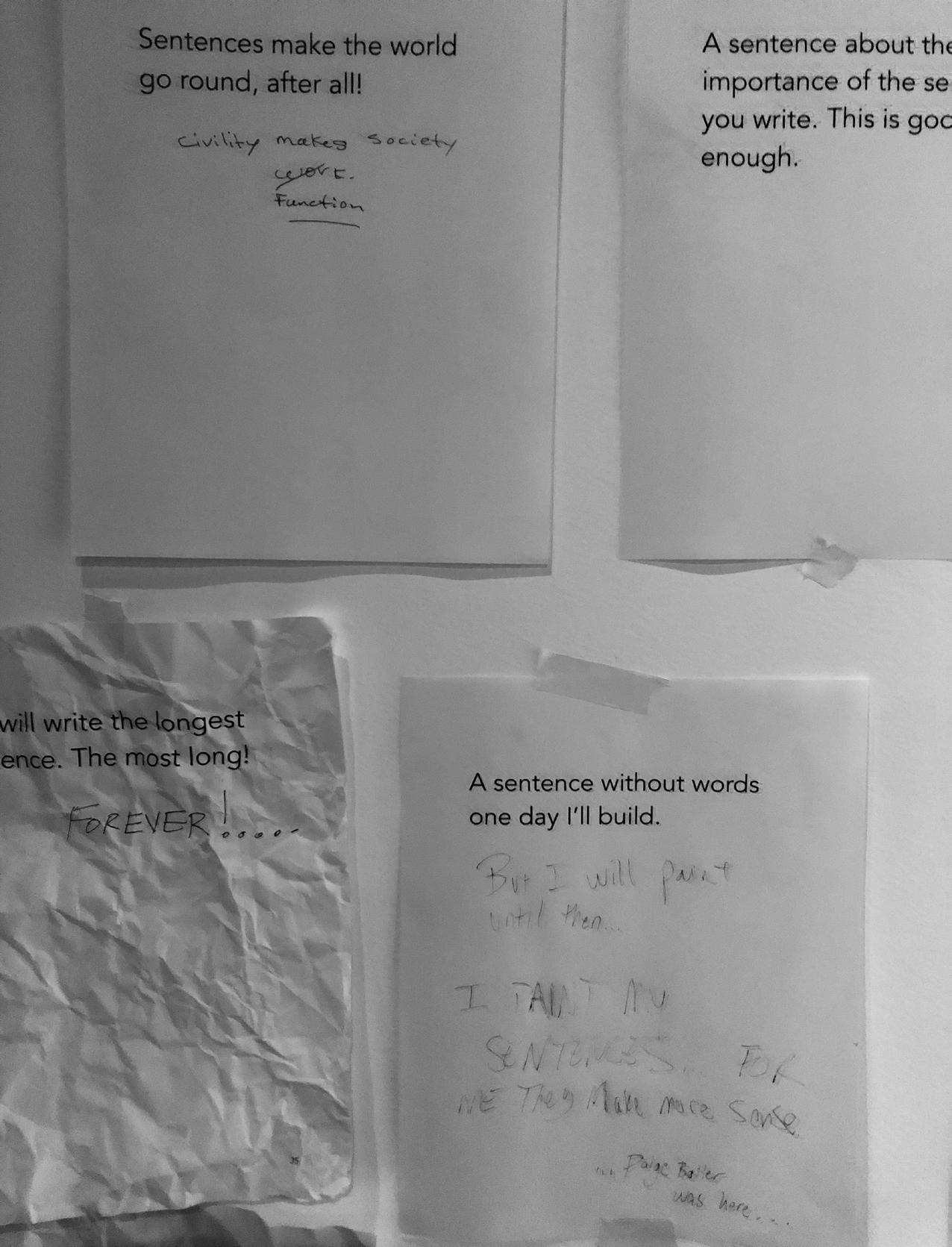
Amir Parsa
Amir Parsa was born in Tehran and currently lives and works in New York.
An internationally acclaimed writer, poet, translator, prose stylist and new formist, Amir Parsa is the author of more than twenty literary works, including Drive-by Cannibalism in the Baroque Tradition, Feu l’encre/Fable, Erre, and The Complete NothingDoings. An uncategorizable body of work, his literary oeuvre–written in English, French, Farsi, Spanish and various hybrids–constitutes a radical polyphonic enterprise that puts into question national, cultural and aesthetic attachments while fashioning innovative genres, discursive endeavors and types of literary artifacts.
Parsa’s curatorial interjections, performances, conceptual pieces and subversions, along with photographic, participatory, and exhibition-based projects have taken place in a host of galleries, public spaces, and environments. Overall and through the years, his books, transgressive literary works, artistic fusions and transdisciplinary interventions have dazzled and bedeviled, enchanted and pissed off, and drawn all kinds of praise and scorn.
Born in Tehran, Parsa attended French international schools in Iran and the U.S., studied at Princeton and Columbia, and currently lives in New York. He is the Founding Director of the Center for Interdisciplinary Studies at Pratt institute, as well as Curator, Individualized Learning, and Associate Provost for Interdisciplinary and Integrative Learning. He coordinates cross-departmental minors, directs the Pratt Integrative Courses, teaches in both the PIC and Writing programs, and regularly launches neo-disciplinary initiatives.
